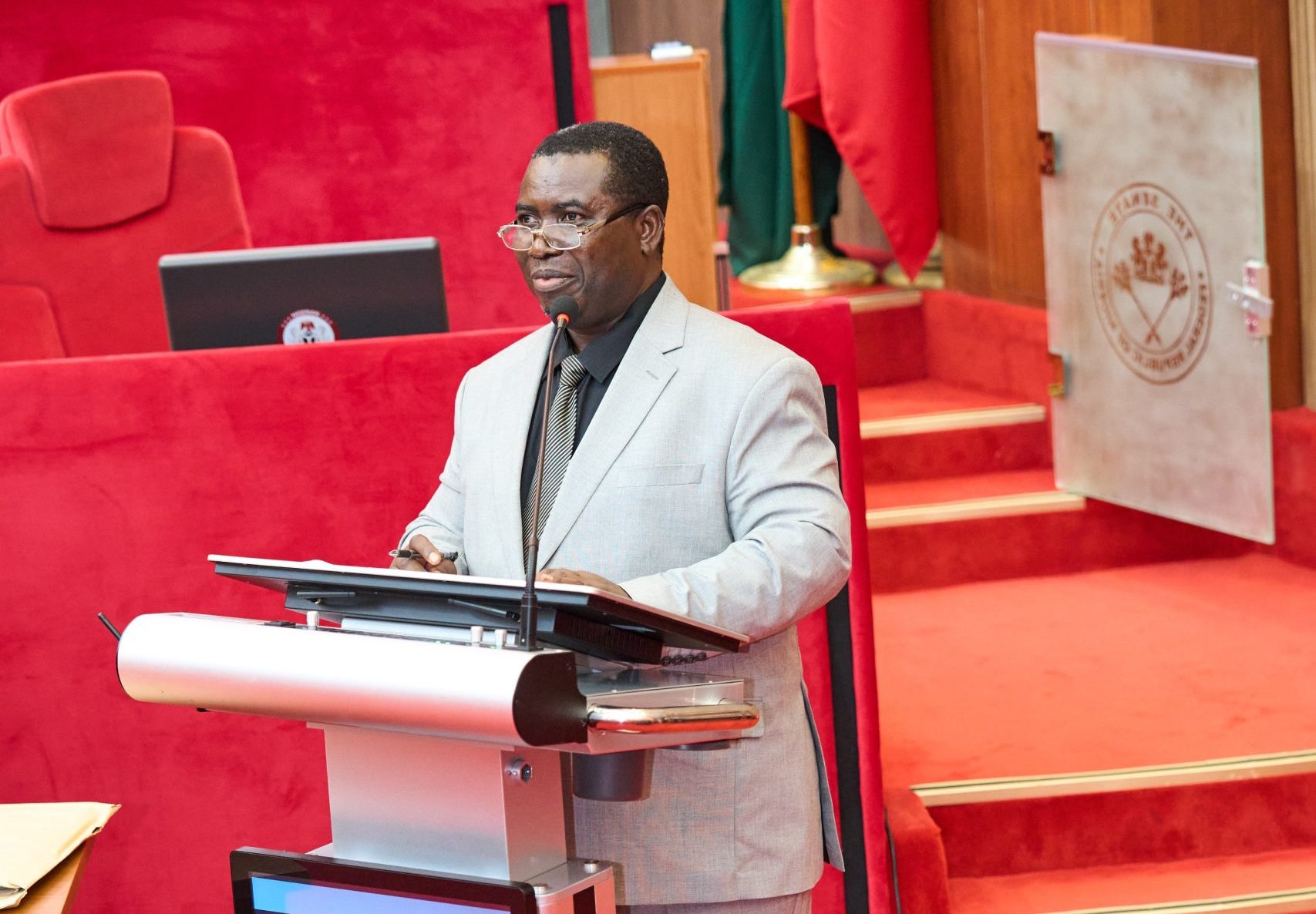The chairman of the Independent National Electoral Commission (INEC), Joash Ojo Amupitan, says Nigeria has finally overcome the longstanding problem of voter impersonation with the deployment of the Bimodal Voter Accreditation System.
Naija News reports that Amupitan, represented by National Commissioner May Agbamuche-Mbu, spoke at the 2025 Digital Nigeria International Conference and Exhibitions organised by the National Information Technology Development Agency.
According to his Chief Press Secretary, Dayo Oketola, the INEC boss described BVAS as a “foolproof mechanism” that has shut the door on identity theft, multiple voting and accreditation-related malpractices.
“The BVAS device has become our frontline defence against identity fraud, ensuring that only the rightful, eligible voter can be accredited at the polling unit. With the biometric safeguards now in place, voter impersonation has been effectively eliminated from our electoral system,” he said.
Speaking to an audience of technology professionals, policymakers and civil society groups, Prof. Amupitan cited the recent Anambra Governorship election as evidence of BVAS efficiency.
He disclosed that all 6,879 BVAS devices deployed for the poll performed commendably, with over 99 per cent of polling unit results uploaded to the INEC Result Viewing Portal on Election Day.
He said the outcome demonstrates that BVAS and IReV have become entrenched components of Nigeria’s electoral architecture and no longer experimental tools.
Amupitan highlighted the significance of Section 47(2) of the Electoral Act 2022, which elevated digital tools from mere administrative aids to statutory instruments for election conduct.
“This legislative foundation ensures that our digital tools have both operational and legal legitimacy. It has strengthened public trust and enabled the Commission to innovate with confidence,” he said.
Despite BVAS successes, the INEC chairman admitted that network constraints remain a major challenge, especially given Nigeria’s 176,846 polling units spread across riverine communities, mountainous locations and remote settlements.
“A tool like the BVAS is only as good as the network it runs on,” he noted, adding that the Commission is working closely with the Nigeria Communications Commission and telecom operators on alternative technological solutions to improve connectivity.
Amupitan dismissed suggestions that the Commission could revert to manual accreditation. He argued that manual processes are prone to human interference and lack the transparency required for modern elections.
“The gains we have recorded are too significant to reverse,” he declared, reaffirming INEC’s commitment to sustaining and upgrading current innovations.
He concluded that the Commission remains committed to ensuring that every eligible voter is accurately verified, every ballot properly counted and every result transparently shared.
Reaffirming that the era of “ghost voters” has ended, he said INEC would continue to build on technological reforms to deliver credible elections nationwide.


